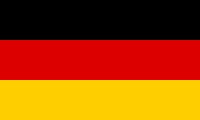Angela Merkel has been returned as Chancellor of Germany to form a pro-nuclear coalition and give nuclear power a future in the country.
 |
Once the rules are changed Germany will cease to be the most prominent country with anti-nuclear policies, leaving Spain, Australia and Belgium to fight for that title. |
Both the right-of-centre parties want to reconsider the 1998 decision to bring nuclear power to an end, made by a left-leaning coalition government which included the SDP and the Greens.
The first step to recognising nuclear power's role in Germany - where it provides 31% of power - will have to come soon: current shutdown schedules would see Neckarwestheim 1, Biblis A and Biblis B close next year. After that, 14 other reactors would close by 2022. Their role was meant to have been taken by mass deployment of renewables but in practice generators were expected to build coal-fired plants instead, hurting Germany's environmental performance.
Talk of any new reactors remains very far off with the likely policy change being an increase in nuclear generation quotas beyond the 32 years on average specified under the previous 'nuclear exit law'.
This will be called a 'life extension' and described as necessary until renewables and efficiency gains can shore up power supplies. However, similar reactors elsewhere operate for up to 60 years subject to strict checks and the owner's economic judgement.
Stocks in Germany's main nuclear utilities rose on the news: EOn up 3.2% and RWE up 2.8% while solar power companies slumped between 1.9% and 4.3% on the expectation of a revision to €3.2 billion-a-year feed-in-tariff for renewables.
Should reactor operators get a positive deal from any changes, the increase in profitability will be taxed with the money going to renewables.
The global stage
The forthcoming change in Germany's stance could bring a new zeal to energy and climate policies of the G8 group of industrialized nations as well as their approach to negotiations.
Every member of that group (Canada, France, Germany, Italy, Japan, Russia the UK and USA) now sees nuclear power as essential to modern power supply and important in avoiding catastrophic climate change.
In the G20 group, of the six nations not yet using nuclear power, all but Australia are planning to introduce it. Australia nevertheless supports them all by exporting 19% of the world's uranium, the raw ingredient of reactor fuel.




_91467.jpg)
_47120.jpg)

_23621.jpg)





